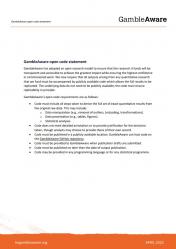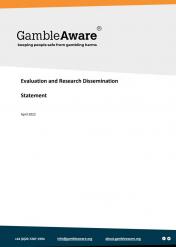GambleAware awards £350,000 grant to fund research into gambling stigmatisation and discrimination
GambleAware awards a £350,000 grant to examine how people who experience gambling harms are affected by stigma and discrimination.
GambleAware has awarded a £350,000 grant to the National Centre for Social Research (NatCen) and the University of Wolverhampton, who are collaborating with Liverpool John Moores University to examine how people who experience gambling harms are affected by stigma and discrimination.
The research will look to identify how people who experience gambling harms are stigmatised and discriminated against by a range of groups and sectors across society, including:
- service and healthcare providers
- civil society, and third sector and charitable organisations
- their communities and families
- popular media, and in political and policy discourse
- the gambling industry more generally
NatCen and the University of Wolverhampton will also establish which communities are disproportionately impacted by stigmatisation and why, particularly how stigma can intersect and affect people who struggle with gambling in addition to other challenges. This would include people who experience gambling harms as well as drug use, anxiety or depression, or have lived experiences of homelessness.
The research will identify the kinds of services, interventions, information campaigns, and policies needed to challenge stigmatisation, including widespread stigma in research and the media, and aim to reduce gambling harms for stigmatised communities. Findings are expected to be made available in 2024.
Anna Hargrave, GambleAware Chief Commissioning Officer, said: “Currently there is limited research into stigma and gambling in Great Britain. We know further research is needed to break down the substantive barrier of stigmatisation – and the discrimination it drives – faced by those experiencing gambling harms and their communities. Stigmatisation causes significant harm in and of itself, and can lead to people feeling shame, experiencing mental health challenges and social exclusion. We also know that stigma can stop people from accessing essential support or treatment services such as the National Gambling Treatment Service.
“This research with NatCen and the University of Wolverhampton will be an important step towards a programme of work that builds more knowledge in this area.”
Stigma will be a major focus of GambleAware’s work across 2023 and 2024, including plans to launch a major new behaviour change campaign in Spring to the reduce the stigma associated with gambling harms.

